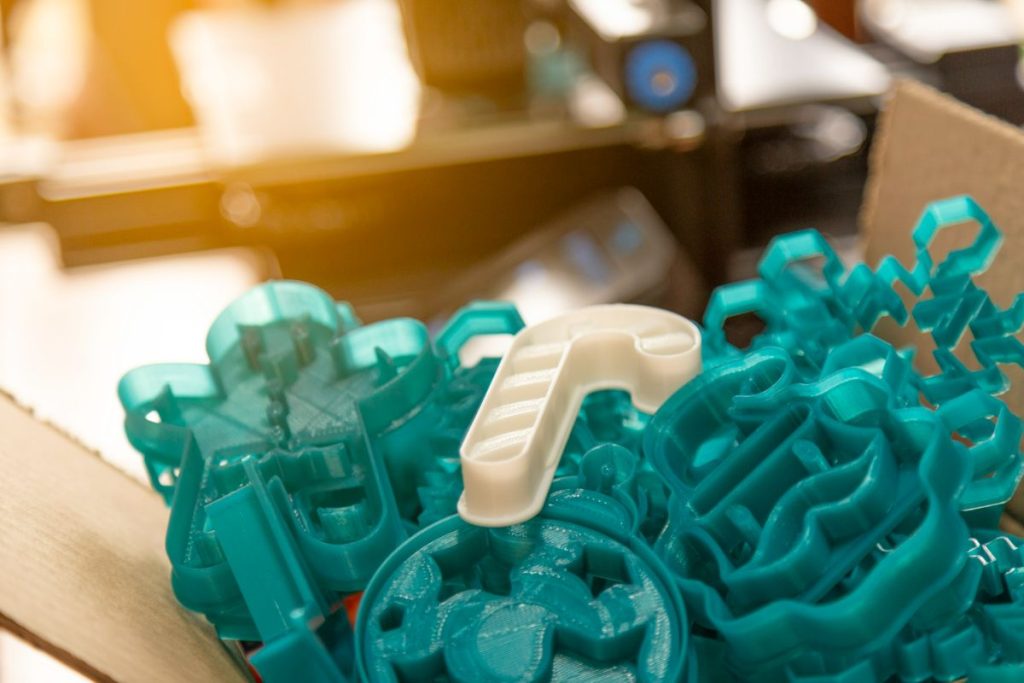What are some sustainable practices in plastic injection molding?
- Enhance energy efficiency
- Select sustainable materials
- Incorporate recycled content
- Minimize packaging
- Manage waste effectively
- Implement closed-loop systems
Overview
- In the manufacturing industry, plastic injection molding plays a key role in shaping diverse products, from automotive components to home appliances and medical devices.
- Enhancing energy efficiency through renewable sources, selecting sustainable materials like recycled plastics, and incorporating recycled content contribute to a circular economy, reducing the overall carbon footprint.
- Managing waste effectively and implementing closed-loop systems further amplify the commitment to sustainability.
At the heart of countless industries, plastic components are essential in shaping our everyday products. Among the various manufacturing processes, plastic injection molding stands out as a cornerstone offering a reliable and high-quality method for crafting these essential pieces.
From automotive parts to home appliances, the applications of this method are endless. That is why many industries are undergoing a paradigm shift, moving from traditional methods to embracing sustainable practices in plastic injection molding. It involves a circular approach, utilizing recycled materials, reducing energy consumption, and minimizing waste.
Enhance Energy Efficiency
Enhancing energy efficiency in plastic injection molding involves adopting techniques and equipment that reduce energy consumption, such as utilizing renewable energy sources and improving machinery efficiency. This technique lessens the environmental impact and contributes to long-term cost savings, showcasing a commitment to reducing carbon footprints.
Nowadays, injection molding companies are increasingly incorporating renewable energy sources into their operations. By harnessing solar power through solar panels or utilizing wind power through wind turbines, they reduce reliance on non-renewable energy, contributing to a more sustainable future.
Select Sustainable Materials
Selecting sustainable materials involves incorporating recycled plastics derived from post-consumer or post-industrial waste into their injection molding process. Recycled materials reduce the environmental impact of plastic manufacturing, addressing concerns related to excessive waste generation and resource depletion.
For instance, using polybutylene terephthalate (PBT), an eco-friendly, biodegradable, and composite thermoplastic helps manufacturers contribute to a greener and more sustainable future. This is due to the fact its durable and resilient to electrical, physical, and chemical stress.
Incorporate Recycled Content
Incorporating recycled content involves integrating recycled plastics into the manufacturing process. This practice contributes to the circular economy, minimizing the reliance on new materials and decreasing the overall carbon footprint of plastic products.
With the growing emphasis on eco-friendly manufacturing practices, consumers are more likely to prefer plastic injection molding companies that actively embrace recycling initiatives. Choosing a company committed to recycling allows businesses to market their products as eco-friendly, creating a competitive edge and boosting their chances of attracting more customers.
Minimize Packaging
Reducing the environmental impact of packaging extends beyond minimizing its physical size; it means adopting eco-friendly alternatives and practices that contribute to a holistic sustainability approach throughout the entire product lifecycle. This strategy involves the design, manufacturing phases, the product’s use, disposal, and potential for recycling or repurposing.
For example, mailing companies can partner with plastic injection molding companies to obtain a poly mailer for their brand, lightweight yet sturdy plastic bags with a self-sealing foldover lip for shipping products. These bags are typically made from low-density polyethylene (LDPE), which can be recycled and used as grocery bags and bottles.
Manage Waste Effectively
Effective waste management involves implementing practices to minimize, recycle, or repurpose waste generated during the injection molding process. This results in a cleaner environment, reducing the overall ecological impact of plastic manufacturing.
Injection molding companies can adopt lean manufacturing principles, a method focused on cutting waste in production systems and boosting efficiency at the same time. This involves a systematic approach to identify and eliminate any non-essential activities that do not add value to the end product.
Implement Closed-Loop Systems
Closed-loop systems involve creating an industrial process that eliminates external inputs, reducing reliance on non-renewable resources. This contributes to a more sustainable manufacturing process by minimizing external inputs and promoting a circular economy.
This process begins in an injection molding facility using recycled plastics derived from post-consumer or post-industrial waste. The system ensures that the excess or defective molded parts are collected, reprocessed, and reintegrated into the production cycle. By closing the loop, the facility significantly reduces its reliance on non-renewable resources, exemplifying a commitment to sustainability.
Key Takeaway
Sustainable practices in plastic injection molding are not simply trends but essential shifts toward responsible manufacturing. Embracing these practices ensures a greener future, addressing environmental concerns associated with traditional plastic manufacturing.
When choosing the best plastic injection molding company, Richfields Corporation stands as a beacon of sustainability. With a commitment to excellence, we offer state-of-the-art mold-making services that align with eco-friendly principles. Contact us today to discuss your project and experience the difference of partnering with a trusted name in the industry.
